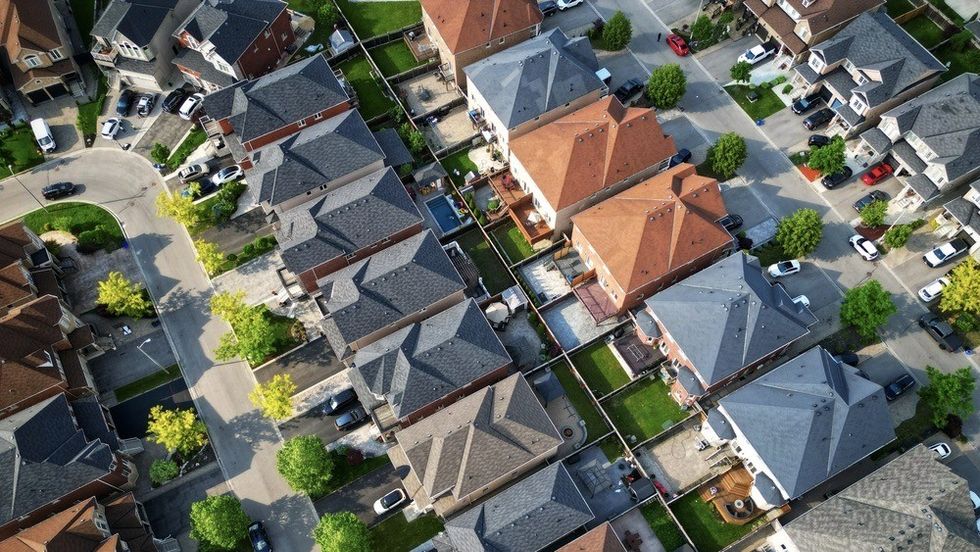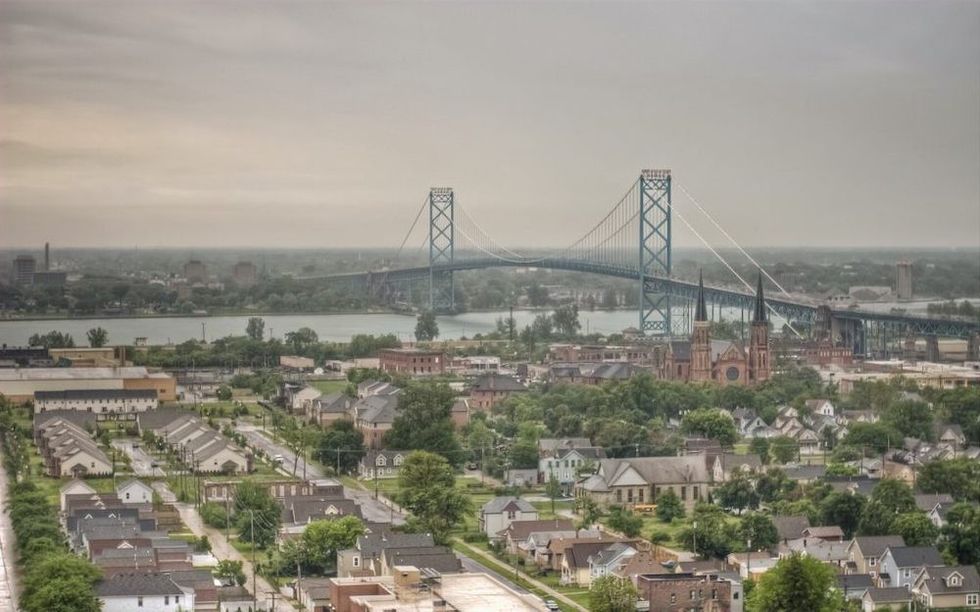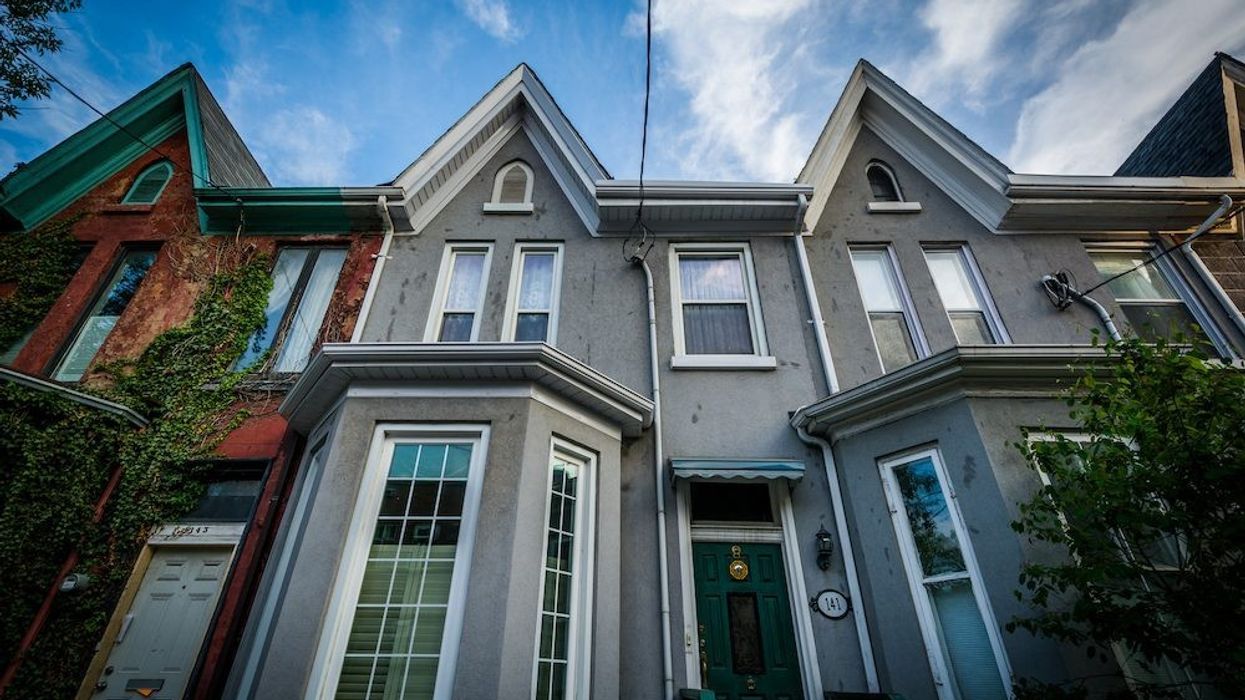Despite it being “the most wonderful time of the year,” one dismal report after another has emerged to shatter the holiday spirits of would-be homeowners.
Yes, we’re being dramatic, but there isn’t room for a lot of optimism on the housing affordability front as we reflect on 2022 and look into the early months of 2023.
RBC Assistant Chief Economist Robert Hogue’s latest housing affordability report, aptly titled Homebuyer blues: dreadful affordability gets worse in Canada, highlights the ballooning costs of homeownership and the fact that there’s no exception to the worsening trend -- we’re seeing it from coast to coast.
"It’s never been so unaffordable to buy a home in this country," writes Hogue. "Further interest rate increases propelled RBC’s aggregate measures to yet new record highs nationally and in Victoria, Vancouver, Toronto, Ottawa, and Halifax in the third quarter." An increase in the measure represents a loss of affordability. Hogue says Montreal’s measure is rapidly approaching that mark too.
Whereas exuberant -- in fact, record-breaking -- home prices kept countless Canadians out of the market during the pandemic, fingers now point to climbing interest rates as the biggest culprit when it comes to housing attainability in Canada.
Interest Rates Are the Biggest Barrier to Market Entry
Hogue highlights how the Bank of Canada’s perpetual interest rate hikes since March -- a move inspired by sky-high inflation -- has made it dramatically more difficult to purchase a home in Canada (not that any first-time buyers need the reminder). He notes how these rate hikes have driven RBC’s aggregate affordability measure to 62.7%, its worst-ever level. The deterioration totalled what Hogue called an "astounding” 14.5% over the past year.
Hogue says that buyers face materially higher ownership costs in every market RBC Economics tracks. “The 12-month increase has been unsurpassed historically in the vast majority of cases,” he writes. Hogue also points out that affordability is overstretched in British Columbia (BC) and Ontario. But conditions are now more challenging than usual in other parts of Canada too -- even historically affordable regions have become out of reach for many.
“Housing affordability really hasn’t improved at all,” Douglas Porter, Chief Economist at BMO Financial Group tells STOREYS. “Even with home prices having come down, the offset has of course been much, much higher borrowing costs. I would suggest that the correction we’ve had in home prices has not compensated for the rise in mortgage rates. Our view is that home prices will come down in 2023. Right now, it’s an incredibly challenging affordability landscape for first-time homebuyers.”

Sky-High Interest Rates Will Stick Around
Porter doesn’t anticipate Canada’s central bank dropping interest rates any time in the near future. Of course, the answer to the fate of interest rates lays in inflation, he says. “We’ll get an important inflation number tomorrow,” says Porter. “But bigger picture, the Bank of Canada has to see not just the headline inflation numbers, but the underlying inflation numbers when you look past gasoline coming down -- and coming down a lot. I’m not talking one or two months of slight drops, but underlying inflation to be below 3%. Right now, it’s above 5%. That doesn’t happen quickly. Our concern is that rates are going to stay relatively high through 2023.”
Porter says his best guess is that the bank won’t even think about cutting interest rates until 2024. Porter, however, does acknowledge that there is a possibility that inflation could drop quicker than we or the market expects. “It is possible that interest rates could ease by the second half of 2023,” he says. “We don’t expect that to happen, but it is a possibility. Unfortunately, that’s a double-edged sword for buyers. I think it would actually be bad news for affordability, making it more challenging for potential homebuyers.”
If interest rates remain high, will home prices soften to the point that home prices will become less daunting?
Hope is on the Horizon (Sort Of)
The pace of decline in home resales and prices has eased in recent months. These may be early signs the correction is approaching its final stage, according to the economists.
Hogue says that price correction should bring relief to buyers -- if they're patient. Intense price pressures will stick around for now and affordability issues aren't expected to reverse quickly, but markets aren't expected to bottom out around spring, says Hogue.
“The low point for affordability is likely close at hand,” writes Hogue. “Widespread price declines -- especially in Ontario and BC -- should help lower ownership costs once interest rates stabilize.” Hogue says RBC economists expect benchmark prices to fall 14% nationwide from the peak by next spring -- a figure that offers a glimmer of hope to those looking to enter the market.
While Porter doesn’t offer us an exact figure, he too says 2023 will likely bring price declines. “A lot of the froth in the market has been swept aside, and ultimately, that will lead to a somewhat better landscape for first-time buyers,” says Porter. “I do think prices will continue to correct in the next six months and then affordability would be slightly better in 2023 than it was this year -- I would emphasize ‘slightly.’ A lot of this is because the investor class has been pushed to the sidelines by the run-up in interest rates.”
Porter points out that Toronto is always going to be seemingly unaffordable, but says that other parts of the province and the country will be slightly more within reach than they have been in the past year.
“Ontario had the biggest housing party during the pandemic, and it’s now having the biggest housing hangover,” says Porter. “It arguably had the worst affordability at the peak, and is probably the province -- especially outside of a Toronto, I’m thinking places like southeastern and eastern Ontario -- that could see affordability improve in the next year because prices are falling, and falling significantly, especially in a lot of medium and smaller-sized cities in Ontario.”

Those with Deeper Pockets Are Most Equip to Handle High Rates
Not surprisingly, those with deeper pockets -- or generous parents with deep pockets -- are better equipped to handle the higher rates. Even those with so-called high-paying jobs can’t afford to enter the market.
The figures are, frankly, depressing (brace yourself). To qualify for a mortgage on the purchase of a typical home (at the benchmark price) in the Vancouver area, a buyer needed to earn a minimum of $200K annually in the third quarter of 2021. A year later, the qualifying income had soared 34% to what Hogue calls “an astounding” $268K. Meanwhile, in the Toronto area, this figure was a tough-to-swallow $240K -- a 29% increase. Sigh.
“What was already a very tough hurdle to clear is now nearly impossible for many potential purchasers,” writes Hogue. “No wonder homebuyer demand has plummeted since the Bank of Canada initiated its rate hike campaign.”
But the more challenging conditions aren’t limited to Canada’s most expensive markets. It’s, in fact, buyers in Halifax and Saint John who have faced the biggest increases in the minimum qualifying income in the past year (up 44% and 41%, respectively) -- though the required amount in Saint John ($74K) is still the lowest among the markets we track. To qualify for a home valued at the benchmark price, buyers in Victoria (who need at least $216K to qualify), Vancouver ($268K), Calgary ($123K), Toronto ($240K), Ottawa ($149K), Montreal ($127K), and Halifax ($116K), must all have six-figure pre-tax income.
These levels widely exceed the respective median household income, which ranges from $74K in Montreal to $92K in Calgary. “In other words, it’s Canadians in the upper income echelons who can afford an average home in these markets -- especially so in Vancouver, Toronto and Victoria,” writes Hogue.
Generally speaking, Porter says we shouldn’t expect a “landscape shift” in terms of housing affordability for those currently priced out of the market. “We still have strong population growth, which is poised to grow even further, and that keeps pressure on home prices,” says Porter. “Even though headline prices will fall further, affordability is still going to be challenging.”
Of course, the unattainability of the homeownership is only putting pressure on the rental market, with rent prices in cities like Toronto climbing back to pre-pandemic levels. But that’s another story for another day (don't shoot the messenger).





















